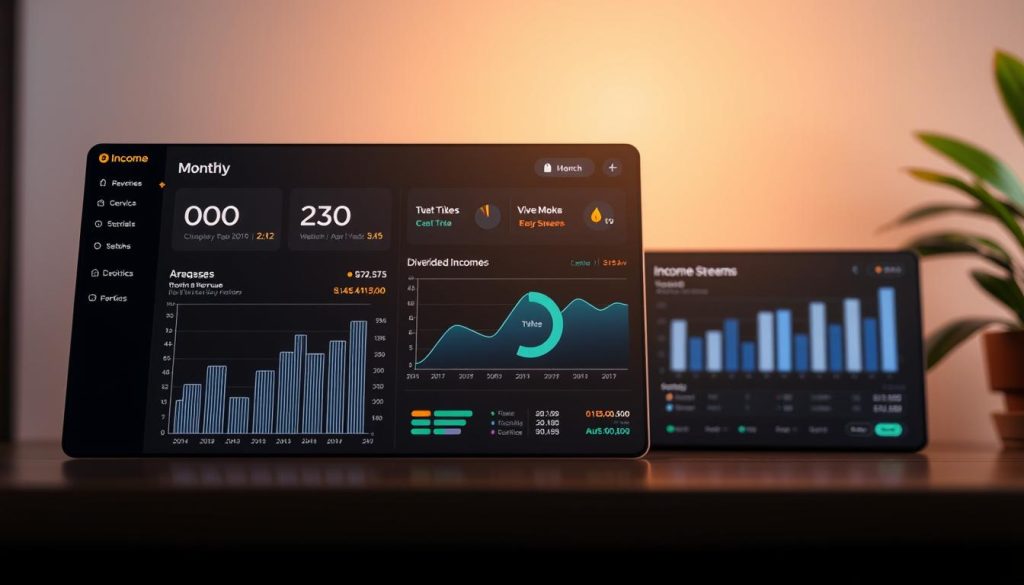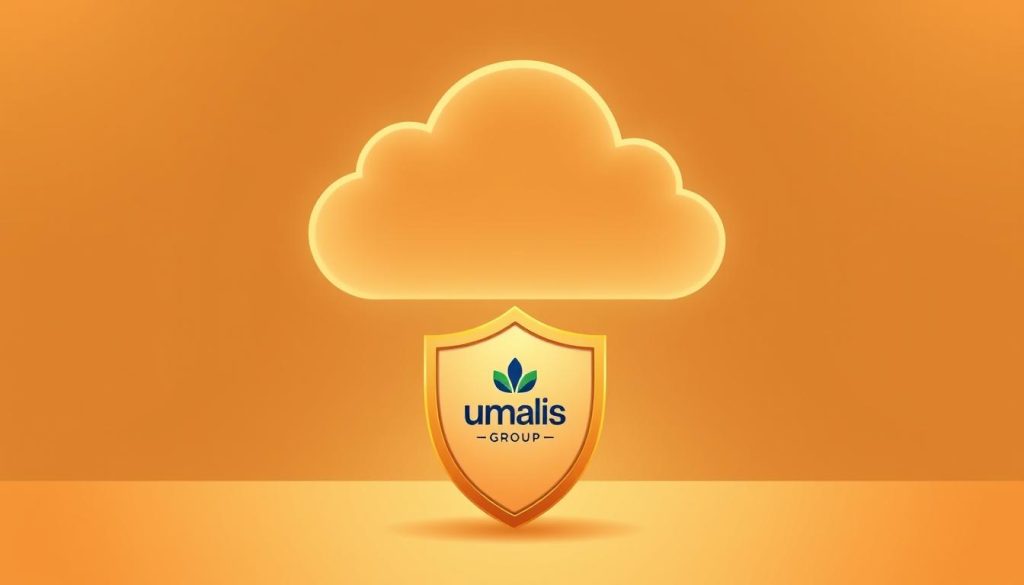As an independent professional, managing your financial stability is crucial in today’s unpredictable economy. The freedom of freelancing comes with its own set of challenges, including irregular income streams and self-managed benefits. To navigate these challenges, it’s essential to have a robust system in place that ensures your financial resilience.
Understanding the fundamentals of financial stability helps you create a sustainable business model that can withstand economic fluctuations and personal financial challenges. By developing specific strategies, such as proper income management and emergency planning, you can ensure your long-term security in the markets.
Table of Contents
Key Takeaways
- Understand the importance of financial stability for independent professionals.
- Develop a robust financial system to manage irregular income streams.
- Create a sustainable business model that withstands economic fluctuations.
- Implement strategies for proper income management and emergency planning.
- Ensure long-term security in the markets through effective planning.
Understanding Financial Stability for Freelancers
Freelancers face unique financial challenges that require a deep understanding of financial stability. A financial system is considered stable when financial institutions and financial markets are able to provide households, communities, and businesses with the resources, services, and products they need to invest, grow, and participate in a well-functioning economy.
The Unique Financial Challenges of Self-Employment
As independent professionals, freelancers encounter distinct financial hurdles, including irregular income, lack of traditional employment benefits, and increased exposure to market fluctuations. This environment demands a proactive approach to managing finances and mitigating risk.
Why Financial Stability Matters More When You’re Independent
Financial stability is particularly crucial for freelancers as it provides the resilience needed to navigate economic downturns and personal financial challenges without disrupting their business. The benefits of financial stability include:
- Making strategic business decisions based on growth potential rather than immediate cash flow needs.
- Being selective about clients and projects, reducing the risk of problematic business relationships.
- Creating a foundation for long-term business sustainability and personal financial security.
- Enhancing market position, allowing for better negotiation of rates and terms with clients.
- Facilitating access to financial services from firms and banking institutions, which is critical for business growth.
Conducting a thorough financial assessment is essential for understanding one’s current financial standing and identifying areas for improvement. By achieving financial stability, freelancers can better navigate the complexities of their profession and build a more secure financial future.
Creating a Sustainable Income Structure

To achieve financial stability, independent professionals need to develop a robust income system. A healthy and stable financial system links savers and investors with borrowers and businesses, facilitating growth and financial intermediation.
Diversifying Your Client Base
Diversifying your client base is crucial for reducing financial risk. By spreading your services across multiple clients, you can mitigate the impact of losing a single client. This strategy helps maintain a steady income flow.
Setting Appropriate Rates for Long-Term Viability
Setting the right rates for your services is vital for long-term financial sustainability. It’s essential to balance your pricing to ensure you’re competitive while also covering your costs and achieving your financial goals.
Developing Multiple Revenue Streams
Beyond client diversification, developing multiple revenue streams can further enhance your financial stability. Consider the following strategies:
- Creating digital products or online courses that generate passive income.
- Offering complementary services that leverage your existing expertise.
- Exploring partnership opportunities with other professionals or banks and financial institutions.
- Regularly reviewing and analyzing the performance of each revenue stream.
By implementing these strategies, you can build a resilient income system that supports your financial goals. It’s also important to regularly report on your income streams to identify areas for improvement and opportunities for growth.
Building Your Financial Safety Net
Establishing a financial safety net is crucial for independent professionals to navigate through uncertain times. This safety net acts as a buffer against financial shocks, ensuring that you can continue your business operations even during difficult periods.
Establishing an Emergency Fund
The first step in building your financial safety net is to establish an emergency fund. This fund should cover at least 3-6 months of your living and business expenses. Having such a fund in place allows you to manage unexpected expenses or a sudden loss of income without significant financial strain.
Determining Your Optimal Cash Reserve Size
Determining the optimal size of your cash reserve depends on several factors, including your monthly expenses, the stability of your income, and your industry’s volatility. As a general rule, the more unpredictable your income, the larger your cash reserve should be.
- Assess your monthly expenses: Calculate your essential expenses, including both personal and business costs.
- Consider your industry’s volatility: If you operate in a highly competitive or volatile industry, you may need a larger cash reserve.
- Evaluate your income stability: If your income is irregular, you’ll need a more substantial emergency fund.
Where to Keep Your Emergency Savings
It’s essential to keep your emergency savings in accounts that balance accessibility, security, and modest returns to protect against inflation. Consider the following options:
- High-yield savings accounts: These accounts at reputable banks or credit institutions offer better interest rates than traditional savings accounts while maintaining FDIC or NCUA insurance protection.
- Laddered certificates of deposit (CDs): For portions of your emergency fund that you’re less likely to need immediately, potentially earning higher interest.
- Money market accounts: These can offer check-writing privileges and competitive interest rates, providing flexibility for emergency fund management.
Avoid keeping emergency funds in investment products with market risk or withdrawal penalties that could compromise accessibility when needed. The key is to ensure that your emergency fund is readily available and secure, much like the stability it brings to your financial situation in a volatile economy, enhancing your overall security.
Effective Tax Management for Independent Professionals
Effective tax management is a cornerstone of financial health for freelancers and independent professionals. Navigating the complexities of the French tax system can be challenging, but with the right strategies, independent professionals can minimize their tax liability and maximize their financial stability.
Understanding Tax Obligations in France
Independent professionals in France must understand their tax obligations, including the requirement to report their income and expenses accurately. The French tax system whole is designed to tax worldwide income, but various deductions and credits can reduce the tax burden. For instance, understanding the full range of business expenses that qualify as tax deductions is crucial.
- Common deductible expenses include workspace costs, professional equipment, transportation, continuing education, insurance premiums, and certain meal expenses.
- Maintaining meticulous documentation of all business expenses throughout the year is essential for claiming legitimate deductions and surviving potential tax audits.
- Consider consulting with a tax professional who specializes in independent professionals to identify deduction opportunities specific to your industry and business structure.
Quarterly Payments and Planning
Making quarterly tax payments can help independent professionals avoid penalties and manage their cash flow more effectively. Planning for these payments requires estimating annual tax liability and making timely adjustments as needed.
Maximizing Deductions and Credits
To minimize tax liability, independent professionals should stay informed about available tax credits and incentives, such as research and development credits or energy efficiency incentives. For more detailed guidance on managing your finances, including setting appropriate rates, you can refer to our comprehensive guide on setting rates in portage salarial.
By understanding and leveraging these tax strategies, independent professionals can enhance their financial stability and focus on growing their business.
Achieving Financial Stability Through Proper Insurance

The path to financial stability for independent professionals involves not just smart financial planning, but also adequate insurance protection. As a freelancer, you’re exposed to various risks that can impact your business and personal financial health.
Essential Insurance Coverage for Freelancers
Having the right insurance coverage is crucial for mitigating these risks. This includes health and disability protection, which ensures that you’re covered in case of illness or injury that prevents you from working.
Health and Disability Protection
A key aspect of financial stability is protecting your ability to earn income. Health and disability insurance provide a safety net, ensuring that you can maintain your financial obligations even when faced with unexpected health issues.
Professional Liability Considerations
Professional liability insurance is also vital, as it protects you against claims of negligence or inadequate work. The appropriate liability coverage amount should be based on a careful assessment of your specific business risks and client contracts. Companies offering professional services should be particularly aware of the regulations governing their industry, as these can dictate the level of coverage required.
By securing the right insurance coverage, you can protect your capital and ensure that your business remains resilient in the face of unforeseen challenges, much like how banks provide stability to the financial system.
Smart Debt Management Strategies
As an independent professional, managing debt wisely is key to maintaining a stable financial system. Not all debt is detrimental; strategic borrowing can accelerate business growth when used to finance revenue-generating activities or assets.
Separating Personal and Business Debt
It’s essential to differentiate between personal and business debt to manage finances effectively. This separation allows for clearer financial reporting and better decision-making regarding debt repayment and new borrowing.
Prioritizing Debt Repayment
Prioritize debt repayment by focusing on high-interest debts first. Consider consolidating debts into a lower-interest loan or balance transfer option if available. This strategy can simplify payments and potentially save money on interest.
Leveraging Good Debt for Growth
Evaluate potential debt financing based on whether it will generate returns exceeding the cost of borrowing and contribute to a more stable financial system whole for your business. For instance, consider exploring specialized financing options for independent professionals, such as equipment leasing or invoice financing, which can provide necessary capital without overly straining cash flow.
| Debt Type | Interest Rate | Repayment Term |
|---|---|---|
| Business Loan | 6% | 5 years |
| Personal Loan | 8% | 3 years |
| Credit Card | 18% | Variable |
Maintaining a healthy financial profile requires independent professionals to adopt smart debt management practices, ensuring access to favorable financing terms when strategic growth opportunities arise.
Planning for Retirement as an Independent Professional
For independent professionals, creating a comprehensive retirement plan is essential for a secure financial future. As a freelancer, you’re responsible for your own retirement savings, making it crucial to develop a strategy that balances current needs with long-term security.
French Retirement Options for Self-Employed
In France, self-employed individuals have various retirement options to consider. You can explore portage salarial and other retirement savings plans tailored to independent professionals.
Creating a Consistent Investment Strategy
Developing a consistent investment strategy is vital for retirement planning. This involves:
- Allocating resources effectively between business growth, personal income, and retirement savings.
- Addressing potential retirement planning vulnerabilities, such as inconsistent contributions during slow periods.
- Considering how your business fits into your retirement strategy, whether you plan to sell it or maintain it as a source of passive income.
Balancing Current Needs with Future Security
Balancing immediate business needs with long-term retirement security is a challenge. To achieve this balance, consider working with financial advisors or retirement planning services that specialize in serving independent professionals, helping you navigate vulnerabilities and create a secure financial future.
Conclusion: Your Path to Financial Resilience
Building a stable financial foundation is essential for independent professionals to thrive in today’s economy. To achieve this, you need to adopt a comprehensive approach that addresses immediate income management, protection against risks, and long-term security planning.
Key strategies for financial stability include diversifying your income streams, establishing an emergency fund, and leveraging insurance coverage. By implementing these practices, you can create a financial system that is resilient to unexpected events and economic crisis.
For more guidance on achieving financial stability as an independent professional, consider exploring resources like our practical guide to succeeding in portage. This will help you refine your financial stability strategy and make informed decisions about your career.
FAQ
What are the key factors that contribute to financial stability for independent professionals?
Achieving financial stability as an independent professional requires a combination of factors, including a sustainable income structure, a robust emergency fund, effective tax management, and smart debt management strategies. By focusing on these areas, you can build a strong foundation for long-term financial resilience.
How can I determine my optimal cash reserve size?
The ideal cash reserve size varies depending on your business needs, industry, and personal circumstances. A general rule of thumb is to save 3-6 months’ worth of living expenses in an easily accessible savings account. Consider factors like your client base, revenue streams, and expenses to determine the right amount for your situation.
What types of insurance coverage are essential for freelancers?
As a freelancer, you should consider health, disability, and professional liability insurance to protect yourself against unexpected events. These types of insurance can help you maintain your income and avoid financial shocks in case of illness, injury, or lawsuits.
How can I maximize deductions and credits on my tax return?
To minimize your tax liability, keep accurate records of your business expenses, including receipts, invoices, and bank statements. Consult with a tax professional to identify eligible deductions and credits, such as home office expenses, business travel costs, and retirement contributions.
What are some strategies for planning for retirement as an independent professional?
As a self-employed individual, you’re responsible for planning your own retirement. Consider contributing to a SEP-IRA or solo 401(k) to build a tax-deferred retirement savings. Develop a consistent investment strategy, and balance your current needs with future security to ensure a sustainable income stream in retirement.
How can I separate personal and business debt effectively?
To maintain a clear distinction between personal and business finances, open separate bank accounts and credit cards for your business. This will help you track business expenses, simplify tax preparation, and reduce the risk of commingling funds.
What are the benefits of diversifying my client base?
By diversifying your client base, you can reduce your dependence on a single client or industry, making your income more resilient to market fluctuations. This can help you maintain a stable cash flow and minimize the risk of financial shocks.





